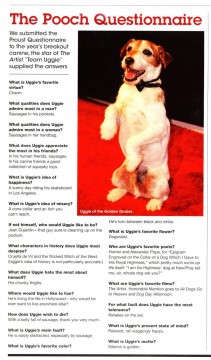Safe House is a twisted claw of a movie, a picture so visually ugly that, to borrow a line from Moms Mabley, it hurt my feelings. Let’s forget, for a moment, about the sub-sub-sub- Training Day plot, in which a wily old-coot operative played by Denzel Washington simultaneously annoys and educates spring-chicken CIA agent Ryan Reynolds. The plot mechanics don’t matter much. What does matter is the inexplicable horror of how lousy this film looks. Movies aren’t strictly a visual medium — they’re too complicated for that — but there’s something wrong when the only thing you can think of while watching a picture is, “Damn! My eyes!” Where to lay the blame? It’s hard to say, but let me unwrap these gauze bandages and I’ll try. The director of Safe House is Swedish-born director Daniel Espinosa, who made a 2010 crime caper called Easy Money . Are the horrors of Safe House completely his fault? Probably not. The script, by David Guggenheim, seems serviceable enough, if generic: Washington’s character, a fugitive smoothie named Tobin Frost, is brought in by the CIA for questioning and a little waterboarding. It’s all in a day’s work, right? Frost has info the organization desperately wants. Of course, other people want it, too: The joint where Frost has been locked up is suddenly overrun by Middle Eastern-looking baddies, who try to kill him. Poor Matt Weston, Reynolds’ character, has been entrusted to watch Frost and needs to spirit him away to safety, thus giving Frost many opportunities to chuckle derisively at the antics of this plucky little greenhorn. Meanwhile, somewhere at CIA headquarters, a bunch of people in suits — played by Sam Shepard, Brendan Gleeson and Vera Farmiga, among others — call up info on Frost on big computer screens, loudly reciting Important Facts about this Very Dangerous Man. Through it all, Frost and Weston have to run around. A lot. They also have to shoot people. A lot. And they also get shot at. A lot. All of these things are standard in contemporary action thrillers — by themselves, they’re not enough to make or break a picture. Washington and Reynolds don’t seem to give particularly bad performances — in fact, they run around, shoot people and get shot at with actorly proficiency. The problem is, it’s just so hard to look at them. Like many features these days, Safe House was shot with a handheld camera. But while smart filmmakers have learned to chill out with the camera jiggling, the Safe House cameras are partying like it’s 2009: This isn’t just shaky-cam, it’s super -shaky-cam. The camera moves back and forth, up and down, just because it can. Craving a bunch of wholly unnecessary circular pans? Safe House has ’em! The tonal palette consists mostly of ochre yellows and greeny grays — cataract colors. And the editing is razor-sharp, meticulous and rapid-fire — so razor-sharp, meticulous and rapid-fire that you can’t really see anything. It’s like eating vegetables that have been sliced so thin they barely exist. Safe House is, I guess, pretty violent, from what you can actually see: There’s some ewky business in which flesh is stabbed with a shard of glass. Yet despite the presence of this sort of brutality, the picture has no pulse. It’s so crappy looking it anesthetizes you — the story it’s trying to tell dissolves away to vapor. So who’s holding the bag for this stinkbomb? The cinematographer, Oliver Wood, has shot plenty of other movies that look perfectly fine, including Surrogates and Fantastic Four , as well, as perhaps most tellingly, the Bourne movies. The editing is by Richard Pearson, who cut The Bourne Supremacy , as well as other cogent features like Quantum of Solace and United 93 . Moviegoers are divided, of course, on the way the Bourne movies have been shot and edited: For some, they’re too crazy, too disconnected, too frenetic. I think they generally work, coasting on their sheer peripatetic energy — but it’s possible their time has passed. It’s also possible that Safe House , while borrowing its style from the Bourne movies, is simply missing some key ingredient: What if every shot were held just one or two seconds longer? What if the camera jiggle was controlled even by just a few centimeters at the top, bottom and sides of the frame? What if the colors didn’t look as if they’d been run through the washer and dryer on the extra-hot setting, every day for three months straight? Then, maybe, it would be possible to look at Safe House directly without having to immediately remedy the experience with two Tylenol. Extra-strength. And throw in some Codeine, too. Please. Follow Stephanie Zacharek on Twitter . Follow Movieline on Twitter .
Read more:
REVIEW: Damn! My Eyes! Who Hit Safe House with the Ugly Stick?

























